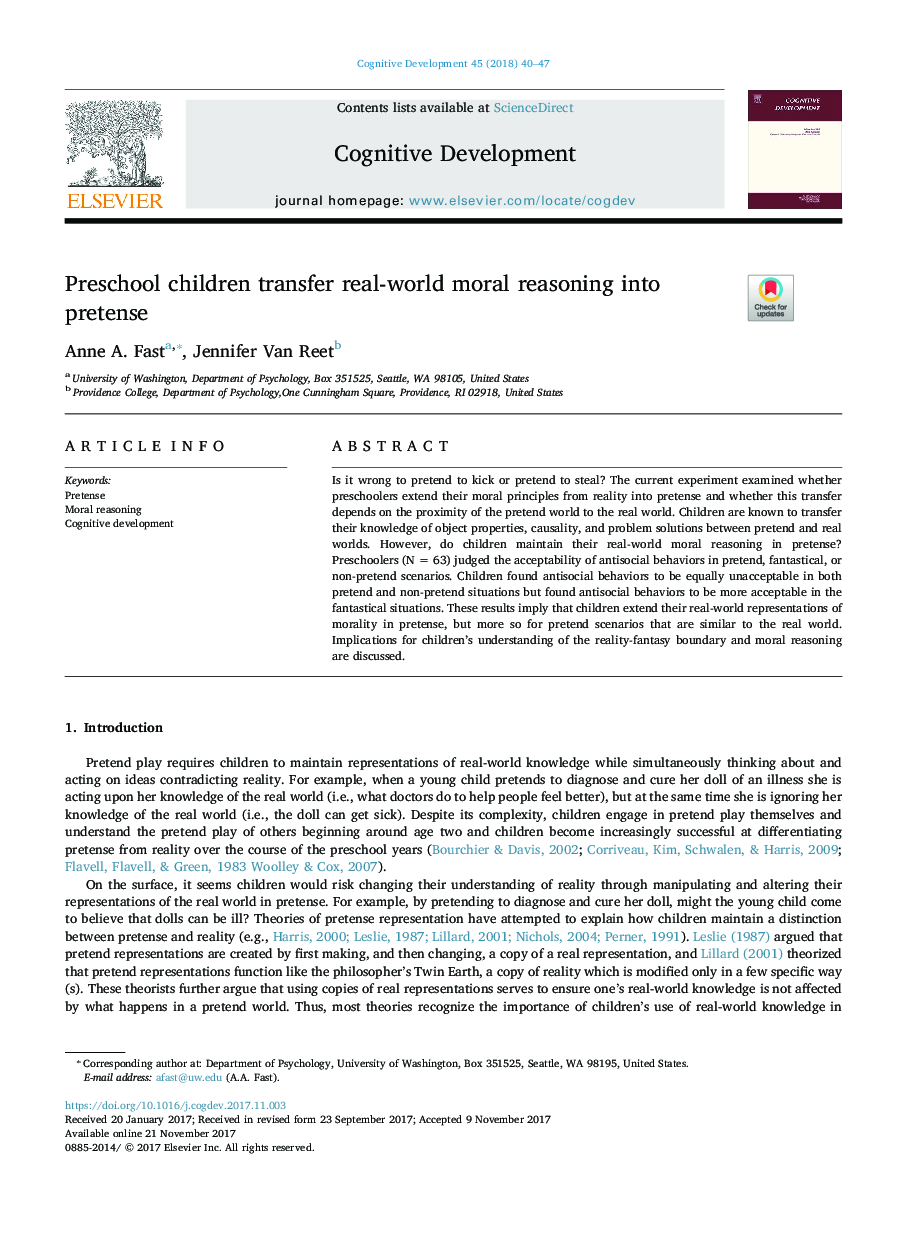| Article ID | Journal | Published Year | Pages | File Type |
|---|---|---|---|---|
| 7272259 | Cognitive Development | 2018 | 8 Pages |
Abstract
Is it wrong to pretend to kick or pretend to steal? The current experiment examined whether preschoolers extend their moral principles from reality into pretense and whether this transfer depends on the proximity of the pretend world to the real world. Children are known to transfer their knowledge of object properties, causality, and problem solutions between pretend and real worlds. However, do children maintain their real-world moral reasoning in pretense? Preschoolers (NÂ =Â 63) judged the acceptability of antisocial behaviors in pretend, fantastical, or non-pretend scenarios. Children found antisocial behaviors to be equally unacceptable in both pretend and non-pretend situations but found antisocial behaviors to be more acceptable in the fantastical situations. These results imply that children extend their real-world representations of morality in pretense, but more so for pretend scenarios that are similar to the real world. Implications for children's understanding of the reality-fantasy boundary and moral reasoning are discussed.
Related Topics
Social Sciences and Humanities
Psychology
Developmental and Educational Psychology
Authors
Anne A. Fast, Jennifer Van Reet,
